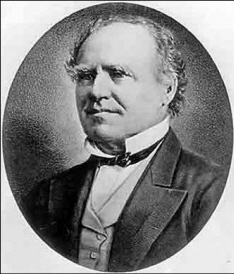 |

 |
 |

 |
November 26, 2004, The Halifax Herald Limited To Howe: a Mi'kmaq Wela'lin (thank you)

WHENEVER Nova Scotia celebrates a hallmark in its colonial history, the skeletons of its racist past come marching out of the closet. This stems from the fact that up until recent times, it was primarily a white Protestant bastion.
This is put into perspective by this passage from an opinion article by Andrew W. Smith (The Chronicle Herald, June 1, 2004): "In his 1998 book In Armageddon's Shadow: The Civil War and Canada's Maritime Provinces, University of New Brunswick professor Greg Marquis documents the fervent pro-Confederacy (the Confederacy defended slavery) and anti-Union sentiment in Nova Scotia and the Maritimes during the (U.S. Civil) war.
"Sam Slick author and former Nova Scotia chief justice Thomas Chandler Haliburton condemned the Union for 'the ungodly and unchristian way in which they carried on the war . . .' and 'their utter disregard of all international law.' "
This white supremacist mindset, besides victimizing people of colour, also victimized white Catholics. The whites most oppressed by it were the French Acadians. And, not surprisingly, the oppression was encased in law.
During Nova Scotia's recent celebration of the 250th anniversary of the establishment of its Supreme Court, it was said that the court had been a rock of justice since its beginning. This does not square with the fact that Jonathan Belcher, its first justice, in defiance of orders from his superiors, used warped interpretations of the law to continue with the deportation of the Acadians.
Also, among many other outrages, it has enforced laws that discriminated against minorities, including one that forced Catholics to take an anti-Catholic oath before they could serve in public office. A more recent discriminatory incident is the 1980s unlawful conviction appeal of Donald Marshall Jr. During Marshall's appeal, the court felt compelled to tell him that he was the "architect of his own misfortune."
However, there are some great and ethical historic figures that all can celebrate. This year, Nova Scotia is celebrating the 200th anniversary of the birth of such a person, Joseph Howe. Although he was bigoted in the belief that English culture was the ultimate, he did not believe that a person's colour made him/her intellectually superior. That was not the belief of the vast majority at that time.
In 1843, in his capacity as Indian commissioner and concerned that the Mi'kmaq population was declining drastically, Joseph Howe submitted a report to the governor, which included this statement: "At this rate (of decline), the whole race would be extinct in 40 years; and half a century hence, the very existence of the tribe would be as a dream and a tradition to our grandchildren, who would find it difficult to imagine the features or dwelling of a Micmac, as we do to realize those of an Ancient Breton. . . . Assuming the statistics of 1838 as a basis of a calculation, and deducting 10 per cent, your Lordship will perceive that there must be at least 1,300 souls still in this province, appealing to the sympathies of every honourable mind by the contrast of their misfortunes with our prosperity, their fading numbers with our numerical advancement, their ignorance and destitution with the wealth and civilization which surrounds and presses upon them from every side."
The following was part of a May 22, 1867, speech he made in Dartmouth opposing Confederation: "The Indians who scalped your forefathers were open enemies, and had good reason for what they did. They were fighting for their country, which they loved, as we have loved it in these latter years. It was a wilderness. There was perhaps not a square mile of cultivation, or a road or a bridge anywhere. But it was their home, and what God in His bounty had given them, they defended like brave and true men. They fought the old pioneers of our civilization for a hundred and thirty years, and during all that time, they were true to each other and to their country, wilderness though it was. There is no record or tradition of treachery or betrayal of trust among these savages to parallel that of which you complain.
"Let us, in imagination, do them the injustice they do not deserve, and assume that six of their young men went over and sold them to the Milicetes of New Brunswick or to the Penobscots of Maine. What would have happened? Would the old men, on their return, have folded them to their bosoms, or the young braves have trusted them again? No, the tomahawk and the fire would have been their reward, and the duty of honour and good faith would have been illustrated by a terrible example.
"The race is mouldering away, but there is no stain of treason on its traditions. Even in its day of decadence and humiliation, it challenges respect, and when the last of the Micmacs bows his head in his solitary camp and resigns his soul to his Creator, he may look back with pride upon the past, and thank the Great Spirit that there was not a Tupper or a Henry, an Archibald or a McCully in his tribe."
Hats off to a truly great Nova Scotian, a man whose memory we can all celebrate, Joseph Howe!